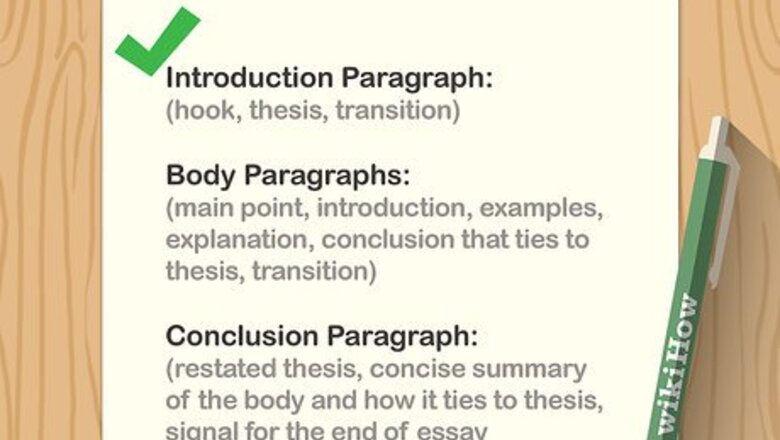
views
Crafting and Editing the Essay
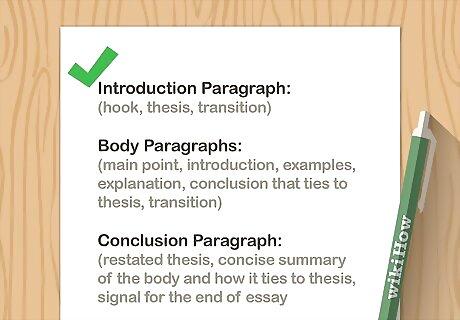
Read the essay contest rules before starting. This helps you understand what the essay should be about and lets you know of any rules you need to follow. Pay attention to the submission dates, character or word limits, and any other specific instructions you need to follow. If you don’t follow one or more of the rules when writing and submitting your essay, your essay may be disqualified, so make sure to read over the rules several times if necessary. It’s a good idea to print out the guidelines so that you can refer to them as you’re writing.

Brainstorm essay ideas to pick a topic that works with the theme. Most essay contests will have a theme that your essay should be about, narrowing down your options for essay ideas. Think about this theme and jot down several ideas for things you could write your essay about. Pick out whichever one you think would make the most interesting essay. It’s super important to stick with the theme when you’re writing and not get off-topic. For example, if the contest asks you to write about a person who has influenced you, make a list of the people that have had a big impact on your life and choose the person who you can write lots of descriptive examples about.
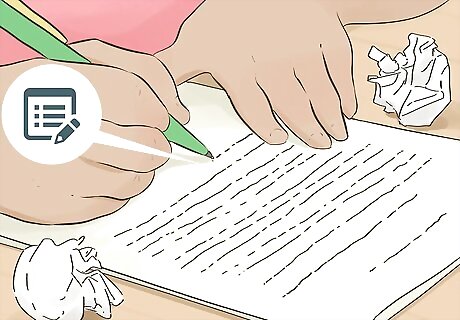
Write a draft of your essay to get out all of your ideas. The first draft of your essay doesn’t need to be perfect, but it should include all of the points you want to make. This is the time to plan out any details, examples, or sections of your essay so that everything pieces together nicely. It’s okay if you have several different drafts of one essay. Make an outline of your essay before you start to help you organize your thoughts.
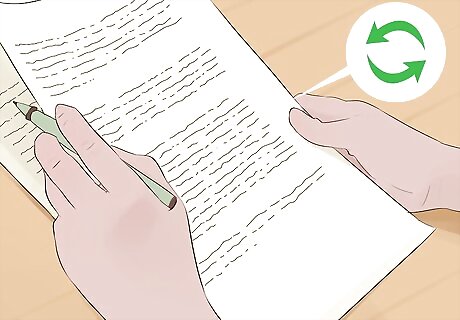
Revise the essay to create a final draft. Once you’ve written an essay with all of your main points in it, go through it again and add anything that would make it better while deleting unnecessary parts, such as specific examples to a point you're making or a description of a person or place. Make sure the essay makes sense and is interesting to the reader. Ask a friend or family member to read over your essay to see if it’s interesting and makes sense. It may help you to put the essay aside for a day or two after you’ve written it so that you can revise it again with a fresh perspective.
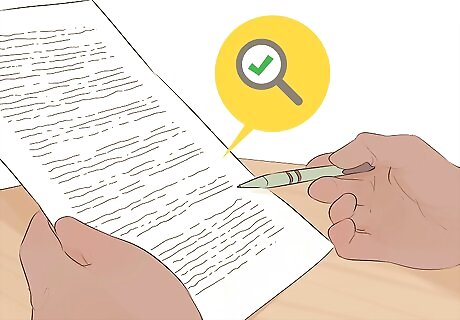
Proofread the essay carefully to check for any mistakes. Now is the time to edit the essay for any typos, spelling mistakes, or grammar mishaps. Read through the essay carefully and make sure all of your punctuation is correct as well. It may help to ask another person to read over the essay to see if they spot any mistakes.

Submit your essay before the deadline. While you should make sure to submit the essay at least by the deadline, it’s even better to submit it well before the submission date. This will help ensure the judges have lots of time to read your essay and don’t have to rush through it to read all of the other essays that were submitted on the deadline. Check to see when the submission deadline is in the contest’s guidelines and rules. It may help you to put the essay deadline on your calendar so that you don’t forget when it is. If you're sending the essay by mail, make sure you send it far enough in advance that it will reach the judges in time.
Making Your Essay Stand Out
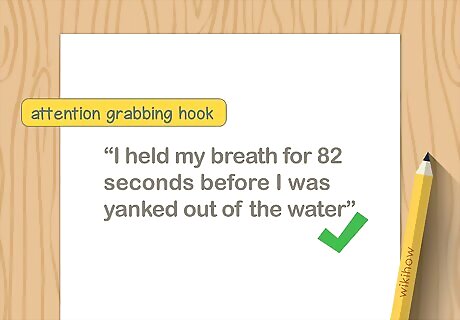
Choose an interesting essay beginning to grab the reader’s attention. The judges will likely have to read lots of other essays, so make yours stand out by immediately engaging them through your writing. When you’re writing your first few sentences, make them super interesting and actionable so that they make a strong impression. An example of an attention-grabbing introduction might be, “I held my breath for 82 seconds before I was yanked out of the water,” or “Sarah walked slowly up to the door, her body drenched in nervous sweat, before firmly knocking.”

Come up with a creative title. The title is one of the first things the judges will read, and they may base their initial judgement of your essay on it. Brainstorm a list of creative and interesting titles that you could use your for essay before picking the one you like best. The title should give the reader a glimpse of what your essay is about while leaving them intrigued. For example, if you’re writing an essay about a lemon picker, you might title the essay, "Living with Sour Fingers."
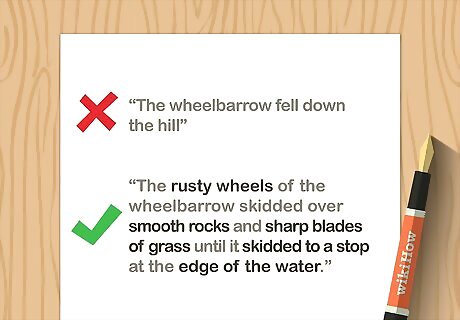
Bring your essay to life by using lots of descriptive words. Whether you’re describing subjects, places, events, or things, it’s important to give them details so that the reader can picture them fully. Follow the saying, “Show, don’t tell” as you’re writing by using descriptions to create great mental images for your reader. Instead of saying, “The wheelbarrow fell down the hill,” you could say, “The rusty wheels of the wheelbarrow skidded over smooth rocks and sharp blades of grass until it skidded to a stop at the edge of the water.”

Be original in your writing to make your essay stand out. Have at least one incredibly original element of your essay, whether it’s funny dialogue, a breathtaking description of a place, or a fascinating and complex subject. It's not a good idea for your text to be all paraphrasing. Read your essay over and over again to find places where you can make a simple sentence even more interesting. Read over your essay and look for sentences or ideas that would likely not be found in another person's essay. If you're having trouble figuring out if you have an original element, have someone else read over your essay and tell you which parts stand out.
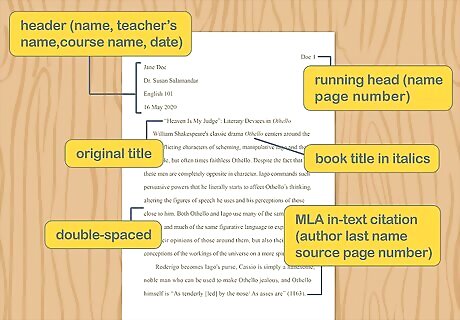
Format your essay so that it looks neat and professional. Type your essay so that it looks nice and neat, double-spacing it and making sure the margins are correct. When the judges open up your envelope to find a super flat or nicely folded essay without any smudges on the paper, they’ll think of you as a more professional writer. Review the essay guidelines to see if there’s a special way they’d like the essay formatted.



















Comments
0 comment